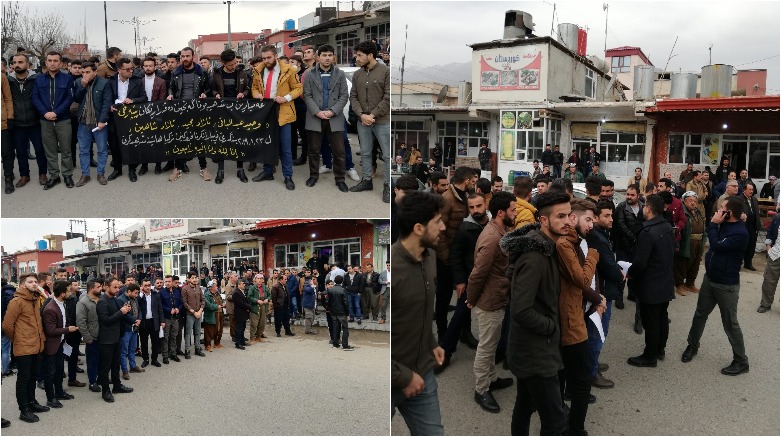Kurdistan residents protest Turkish shelling, PKK presence in their areas

ERBIL (Kurdistan 24) – Locals in the Kurdistan Region Friday took to the streets on Friday to protest recent Turkish shelling that resulted in the deaths of at least two civilians.
In the afternoon, residents from the town of Deralok gathered not only to express solidarity with the victims' family and protest Turkey's continued attacks on innocent people, but also the PKK presence that prompts them.
Turkey's warplanes regularly fly over the border into the Kurdistan Region's airspace to conduct missile strikes against positions Ankara claims members of the Kurdistan Workers' Party (PKK) occupy. The PKK, a group that has been fighting a decades-long insurgency with Ankara over Kurdish rights and self-rule, is designated by Turkey, the European Union, and the United States as a "terrorist" organization.
The guerilla group is thought to have fighters near hundreds of villages inside the Kurdistan Region, mainly in mountainous areas near the Turkish and Iranian borders. Erbil has repeatedly called on the group to stop using the region as a launchpad for its attacks.
On Wednesday, Turkey struck areas near Gali Rashava village, located near the border in Deralok subdistrict, Amadiya (Amedi) district, in the province of Duhok.
During the funeral procession for the victims, grieving relatives called on the PKK and Turkey to put an end to their conflict near areas inhabited by civilians.
Ankara’s incursion and the battles that take place near civilians’ homes have led many to leave their settlements and seek safety southward, at the cost of losing their lands and livelihoods.
Those who remain are sometimes caught up in Turkish military operations. According to numbers compiled by Kurdistan 24, such attacks have resulted in the deaths of 18 civilians in Amedi district alone in the past two years.
Editing by John J. Catherine
